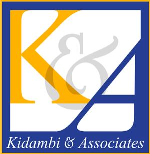Skip to content
DHS Final Rule Offers More Flexibility to Students – Highlights
- The Department of Homeland Security is issuing a final rule that will allow certain foreign students with science, technology, math, or engineering (STEM) degrees to extend their optional practical training or “OPT” period by 2 years, on top of the 1 year already allowed for graduates in all fields. The rule is scheduled to go into effect on May 10, 2016.
- Giving foreign students the opportunity to stay in the United States after graduation to apply what they learned in their studies and receive practical training enhances the student’s educational experience while allowing U.S. employers to benefit from the knowledge and skills graduates gain at U.S. colleges and universities.
- International students make significant contributions to the United States, through the payment of tuition and other expenditures in the U.S. economy, and significantly enhance academic discourse and cultural exchange on campuses throughout the United States.
- In addition, STEM students contribute to our nation through research, innovation, and the provision of knowledge and skills to help develop key industries and sectors of the U.S. economy.
- With competition for international students increasing across the globe, a program providing additional opportunities for STEM graduates to apply their knowledge in a practical setting with a U.S. employer will enhance the reputation of the United States as a top destination for foreign students.
- The final rule will give STEM graduates a total of three years of OPT, up from the 29 months that they are afforded under the current regulations. This will allow STEM graduates and employers the flexibility they require to complete complex research and development projects.
- As with the prior STEM OPT rule extensions are permitted only for students employed by employers who participate in the USCIS electronic employment verification program known as E-Verify.
- The rule also increases oversight of the STEM OPT program by implementing robust new integrity measures including:
- Requiring individualized training plans developed by the employer and the student;
- Requiring the student to regularly report to the university’s designated school official;
- Requiring the employer to attest that the student will not replace a full- or part-time, temporary or permanent U.S. worker;
- Requiring an employer to offer the same terms, conditions, hours, and compensation to the STEM OPT student as similarly situated U.S. workers;
- Allowing extensions only to students with degrees from accredited schools; and
- Authorizing site visits by ICE to verify training plans, compensation, and non-displacement attestations employers are required to sign.
Page load link
